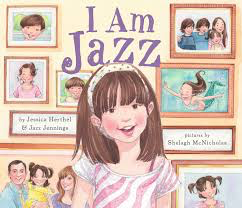Our daughter’s homeschool program had its science fair today. There were about twelve exhibits. Two of them were group projects done during the kids’ regular class days. Given that her program has close to a hundred kids, this is probably average participation in voluntary science-related projects in schools. Which is to say, Americans don’t like science very much.
This experience is borne out at a national level. American kids just don’t seem all that interested in science. I wonder why?
Disinterest in science certainly isn’t part of our inherited culture. The United States has been the birthplace or at least the chosen home of many of history’s great scientists. The United States has been the site of many of the world’s most important inventions. Our lifestyle has been built on science: agricultural science that created our incredibly high-yield crops, chemical science that created the high tech cleaners we love so much, medical science that has given us our long life expectancies. Not to mention social science, which among all the good it has given us also gave us modern advertising and marketing techniques!
Modern kid culture is heavily invested in science. I wrote an article in January about children and media, and found out that use of video games is now nearly ubiquitous in American youth culture. Video games, of course, are based on science: electrical engineering, computer science, etc. Yet as we have to import more and more of our programmers from India and other countries that offer a well-rounded science education, our kids just shrug at opportunities to become educated and get coveted jobs in industries that affect their lives on a daily basis.
Our economists try to sell us on the idea of a “service economy.” But no economy is all service: things need to be created, and many of the creators are scientists.
I know that one problem with teaching science at a homeschool program is that homeschooled children both benefit and suffer from the abilities of their parents. Parents who shrink from the idea of following the scientific method are going to be ill-equipped to help their children navigate it.
But my daughter’s homeschool has a teacher who loves to teach science, and introduced the science fair projects by talking about how she loves to help kids learn to find the answers to their questions.
I wonder, though, if the problem isn’t even more basic. I wonder if kids are ever taught to ask the questions in the first place. Yes, we all like to celebrate our preschoolers who ask those wonderful questions: Why is the sky blue? Who made the first chicken? How is the baby going to get out of your tummy if there’s no hole in your tummy? (That was from my son, age 3!)
But later, as our kids become more and more products of our culture rather than just of their raw genes and abilities, the questions cease. I will never forget the first class I taught at Foothill College. I was trying to draw out a young woman who didn’t seem to have anything to write about. I asked her, well, what do you and your friends talk about?
“We just b.s.,” she said.
But what do you say?
“B.s.,” she said.
She was a perfect product of the culture we have created, where kids get fed entertainment rather than having to make it themselves. She and her friends probably talked about… t.v. shows they watch, fashions they were wearing, what their favorite pop stars had been caught doing. Though they may have had many wonderful ideas and curious questions as preschoolers, our culture had taught them to stifle those questions.
We all know that being smart isn’t cool. It is definitely not cool to be the kid who knows all the answers. It’s even less cool to be the kid who asks uncomfortable questions.
Scientists have to do that. A good scientist tries to disprove her own theories. A good scientist is happy when someone else shows the faults in his process. Good scientists never reach perfect. They don’t ever get the completely right answer.
And that’s a problem for our culture of pre-digested entertainment. When the teacher at my daughter’s school asked one of the kids what she’d learned from her electronics experiment, the girl joked, “uh…that wire strippers are evil?” She and her classmates had had trouble with the materials. But instead of questioning why, and trying to figure out a way around it, she just gave in.
I don’t blame her. I was raised by scientists, and instead of placing blame, I have to question why. I’m not completely sure, but I hope the answer occurs to someone who can do something about it.
Till then… my kids and I will see you at the County Science Fair! Come check it out. It’s fabulous to see how many kids are still interested in asking why.



